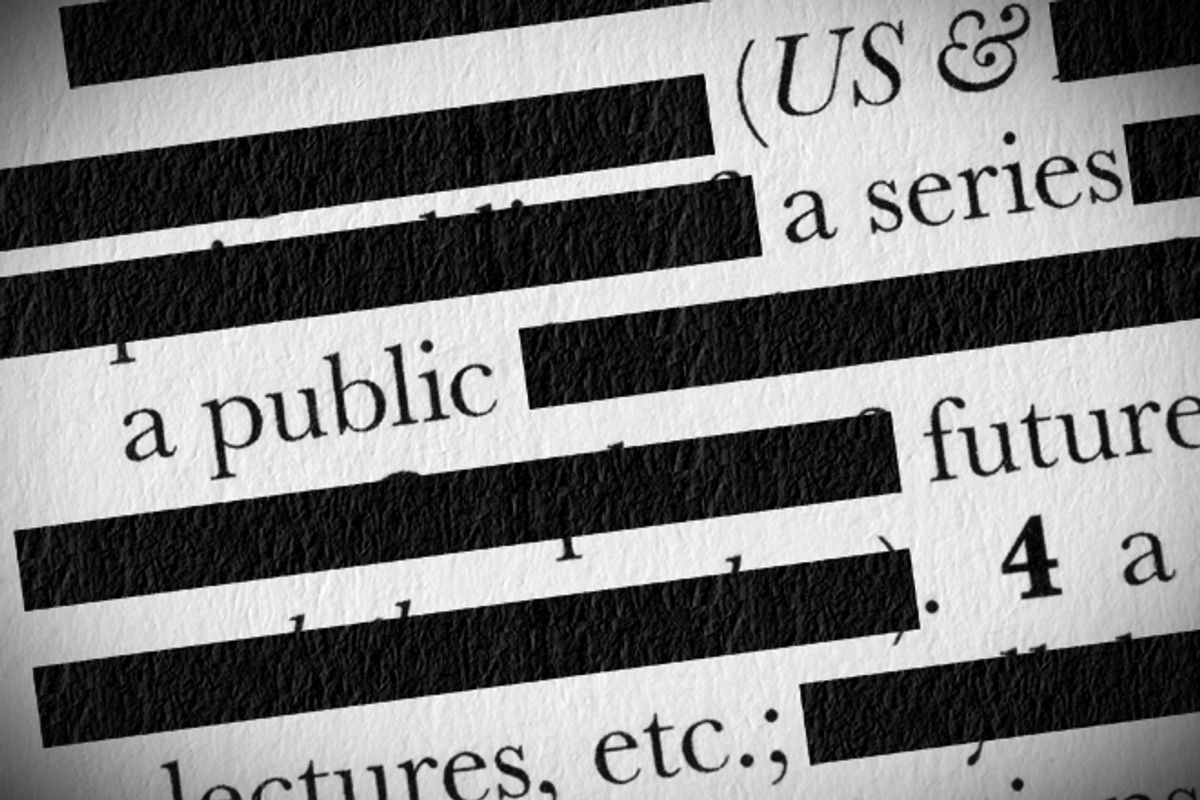There is plenty that's horrible about a racist, sexist act of vandalism at the University of California, Los Angeles. But along with the crime itself, there's yet another depressing aspect to the story: the way it's been reported.
On Wednesday, students discovered a handwritten sign on a bathroom stall door in the school's Powell Library that read, "Asian Women are White-Boy Worshipping Sluts." It was the second such incident in as many days. On Tuesday, a sign saying "asian women R Honkie white-boy worshipping Whores" was tacked to a Vietnamese Student Union sign on the campus's Kerckhoff Hall.
It's not the first time UCLA has battled racism, either. Last year, shortly after the Tohoku earthquake and tsunami, then-student Alexandra Wallace gained YouTube infamy after posting a three-minute diatribe about the "hordes" of Asians in the school library, "going through their whole families just checking on everybody from the tsunami thing," adding, "I'll be typing away furiously, blah blah blah, and then all of the sudden, when I'm about to, like, reach an epiphany, over here from somewhere, 'OHH Ching chong ling long ting tong? OHH.'" (Wallace left the school soon after the clip went viral, saying she'd received death threats.) And last winter, a nearby apartment complex that houses students was defaced with graffiti against "you rude ignorant spic cunts" and "dirty Meximelt bitches."
You can see, then, why this new act is an important story about a sensitive issue. The school's own paper, the Daily Bruin, got it right, opening a story on the crimes with a note explaining, "Given the nature of these slurs, the editorial staff were faced with the question of whether it was appropriate for the student newspaper to repeat these slurs and potentially perpetuate their use. The editorial decision was made to write them as they occurred in order to report accurately and thoroughly on the incident." Transparent, honest and brave — just like journalism is supposed to be.
Yet the local ABC news team couldn't bring itself to say exactly what had happened, reporting, "The language is too graphic for us to repeat, but it was a clear attack against Asian women." The local CBS news, meanwhile, explained the incident with a cryptic reference to a note that said "Asian women R ****** white-boy worshipping ******."
Of course there are compelling reasons for news outlets to not want to publish or speak offending words. If you're a decent person, it's nauseating to repeat them. More significantly, you run the risk of deeply offending your audience – and alienating your advertisers. The New York Times is so concerned with decorum that earlier this year, it refused to even print the names of the STFU, Parents blog or Marc Maron's WTF podcast, lest readers figure out what the F is for.
I have thought about these issues a lot, including again earlier this week, as I was writing on Chris Brown's latest grotesque outburst. I don't like to repeat the garbage that guy spews. It's hateful and it's hurtful. But I also believe when somebody does something gross and cowardly, it's important to tell people exactly what it is. It's important, when talking about what someone has said, to use his or her own words. Anything short of that does the person the favor of softening his or her actions, of taming them. That's why when, two years ago, Salon ran a full transcript of Mel Gibson's "expletive-strewn tirade," it was illuminating to see the words that had come directly from his mouth, at the mother of his child. It said something about what happened that was real and truthful in a way that no bleep or series of dashes could.
Saying what has happened is not the same as endorsing what has happened. It's telling the hard truth about ugly things. It's what you're supposed to do. The news isn't always nice. And as George Orwell said, "Journalism is printing what someone else does not want printed: Everything else is public relations."



Shares